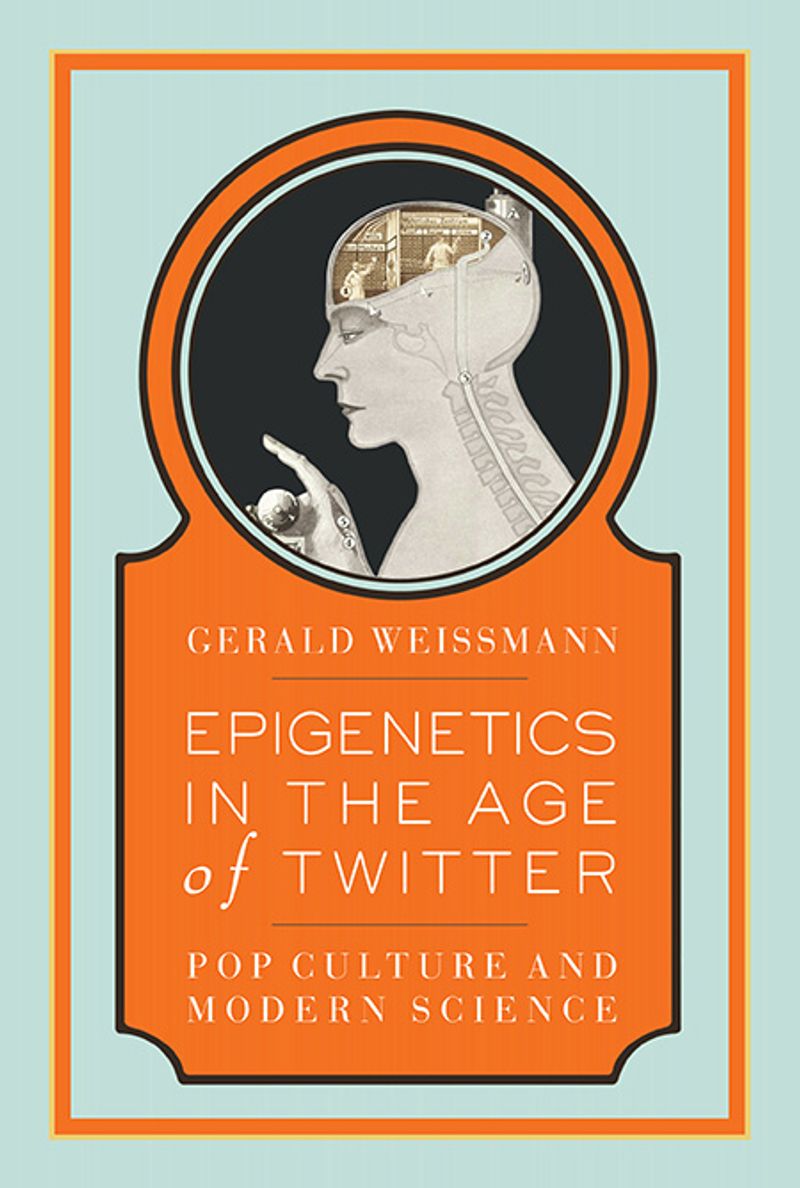[Weissmann] has emerged in the last three decades as America’s most interesting and important essayist. He has achieved this status both epigenetically and through Twitter, word of mouth, so to speak. . . . Much like Susan Sontag, Weissmann likes being a contemporary, and does not feel shackled by tradition. . . . This book is a joy for the heart and instructive for the mind.
— Eric Kandel, Nobel Laureate and author of The Age of Insight
Epigenetics in the Age of Twitter
Pop Culture and Modern Science
Epigenetics, which attempts to explain how our genes respond to our environment, is the latest twist on the historic nature vs. nurture debate. In addressing this and other controversies in contemporary science, Gerald Weissmann taps what he calls “the social network of Western Civilization,” including the many neglected women of science: from the martyred Hypatia of Alexandria, the first woman scientist, to the Nobel laureates Marie Curie, Christiane Nüsslein-Volhard, and Elizabeth Blackburn, among other luminaries in the field. Always instructive and often hilarious, this is a one-volume introduction to modern biology, viewed through the lens of contemporary mass media and the longer historical tradition of the Scientific Revolution. Whether engaging in the healthcare debate or imagining the future prose styling of the scientific research paper in the age of Twitter, Weissmann proves himself as an incisive cultural critic and satirist.

Ebook
- ISBN
- 9781934137512
Paperback
- ISBN
- 9781934137390
Gerald Weissmann (August 7, 1930 – July 10, 2019) was a physician, scientist, editor, and essayist whose collections include The Fevers of Reason: New and Selected Essays; Epigenetics in the Age of Twitter: Pop Culture and Modern Science; Mortal and Immortal DNA: Science and the Lure of Myth; and Galileo’s Gout: Science in an Age of Endarkenment.
visit author page »Praise for Epigenetics in the Age of Twitter
Intertwine[s] the profound connections of science and art in the context of our modern era. . . . Weissmann also does a fantastic job of highlighting the role of women in both the arts and sciences. . . . Each essay provides its fair share of wit and satire, poignantly illustrating faults or curiosities in current scientific thought or public discourse of the scientific realm.
Only a mind as nimble and well traveled as Gerald Weissmann’s could see, never mind make and expound on, the connections between salamanders and Prohibition . . . white blood cells, Hollywood and erectile dysfunction . . . health care reform and Marie Antoinette . . . bacteria, the Equal Rights Amendment and the “Miracle on the Hudson. Better yet, Weissmann does so with wit and insight. A fascinating tour through history, science and pop culture.”
— Dr. Max Gomez, Emmy Award-winning WCBS-TV Medical Correspondent

